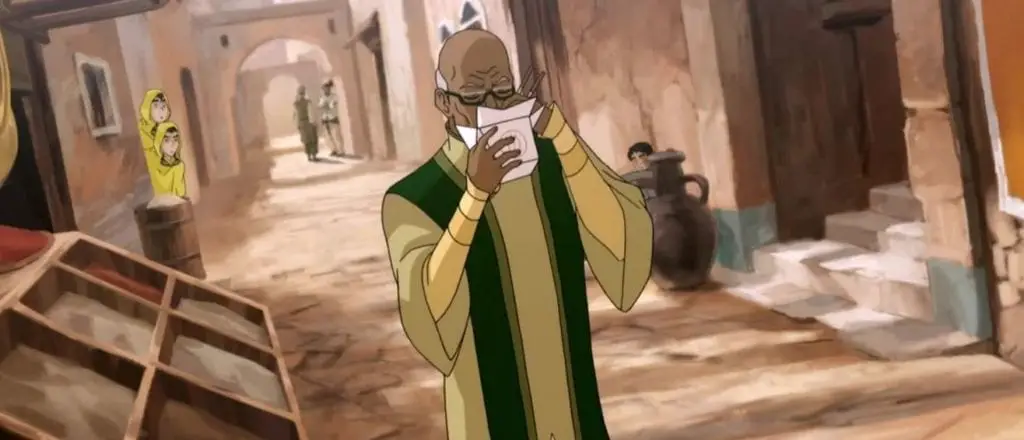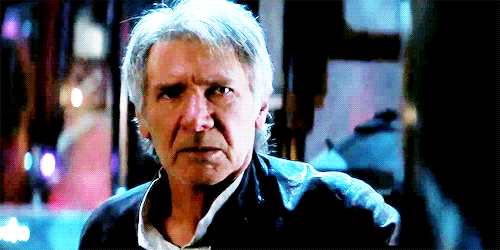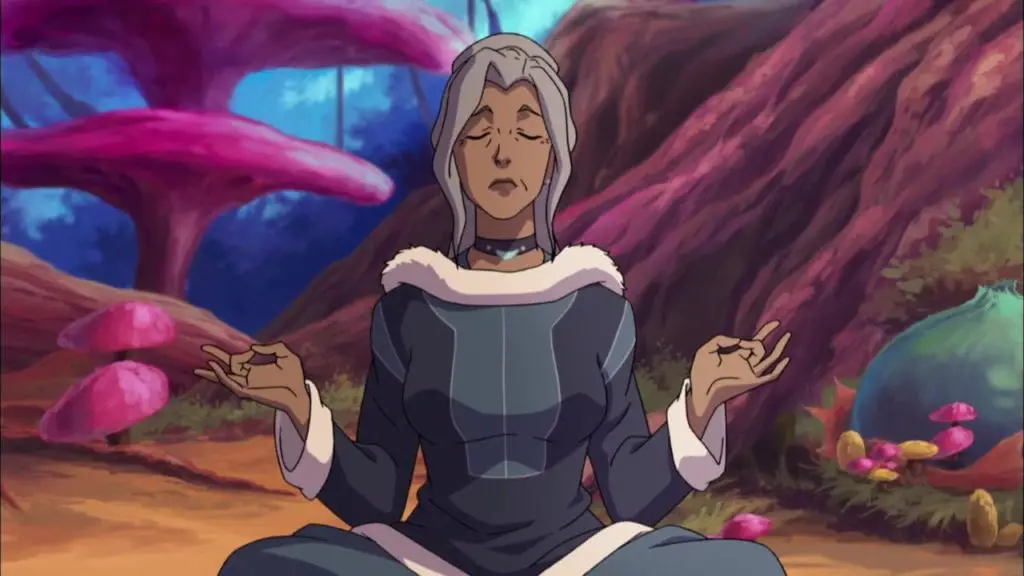Representation is important. Here at the Fandomentals, we cheer for the pieces of media that push for better, broader, explicit representation, while waiting with baited breath for others to deliver. Yet there are times where it’s important to acknowledge that representation can be complicated, too. Often, elements of a character either can’t be explored, or simply weren’t meant to be/haven’t been, yet thanks to fan interaction with storytellers, we are told this information about a character.
The most famous example of this is in the Harry Potter universe, where J.K. Rowling confirmed that he was gay, and had been in love with Grindelwald.
Harry Potter is certainly among the most interesting fandoms. There’s a highly engaged fanbase, along a willingness to really dig deep at the series (and anything its world produces), yet given just how long we’ve all had to ruminate on it, the conversations more or less spiral. Heck, just ask anyone for their opinions on the Mauraders, and try not to wince in anticipation. Frankly, there is almost no stance on Harry Potter that someone could take that hasn’t been taken.
Perhaps for this reason, I’ve seen just about every single reaction to J.K. Rowling’s “outing” of Dumbledore, ranging from people saying it was “representation done right” (read: without accolades and a potentially infantalizing hyper-focus), to saying it demonstrates her homophobia.
A lesser known, but more recent example is out of The Legend of Korra fandom. Ya know, the show that no one around here can ever shut up about, which ended with its protagonist entering into a wlw relationship, the first attempt at something like this on Y7 programming. A few months after the show’s end, its creators Michael Dante DiMartino and Bryan Konietzko (dubbed “Bryke”) were asked “are any characters in the Avatar universe besides Korra and Asami who are part of the lgbtqia+ community?” To which the answer was “sure there are.” Two specific character names were given: Kya (the deuteragonist’s sister), and Aiwei (an incredibly minor character).

There were mostly positive reactions to this, though some suggested Bryke were capitalizing on the success of their “Korrasami” ending to the show, while others went further to say it was insulting, since they weren’t also able to answer a basic question about Mako’s future (a central character) that came up later at this event.
To be clear, there’s no right or wrong way to react to these author’s commentaries. However, both illustrate the muddiness when it comes to pegging down what’s considered “canon.”
The definition is typically used to mean the official narrative…something to separate the realms of fanfiction from what’s depicted (on screen or on page). Yet even there we live in a fun world of grey areas, because every single thing can’t be shown to us. Media requires interpretation, and we do it all the time, more or less subconsciously.
For instance, in The Force Awakens, it’s pretty dang clear to me that Han and Leia’s actions were motivated largely by guilt. But neither one of them explicated this fact. Han didn’t turn to Finn on Starkiller Base and say, “I’m here to bring my son home because I blame myself for his turn to the dark side.” So, is the guilt canonical? It’s possible to have other interpretations, right?

Other cases are far less clear-cut. In The Legend of Korra, we know that Korra is decidedly not a morning person since she complains bitterly about waking up early. However, it’s loosely accepted by most that Asami is, mostly due to her neat and methodical personality. This isn’t “canon” though, in its strictest definition, but rather “headcanon.” Or is it character analysis?
If your head isn’t hurting already, we also have the fun realm of subtext! In Adventure Time after watching the episode “What Was Missing”, many of us picked up on a vibe between Princess Bubblegum and Marceline, which suggested they had a past that was not strictly platonic. This was quasi-confirmed by members of the crew over the past several years, and the two characters are most definitely on a trajectory that reads as if they’re getting back together (or already are). But wait, does that mean their past romance is canon? When did it become canon? If characters are gay in the woods, but no author ever tells the fanbase, do they still want to kiss?
And don’t even get me started on Death of the Author and inherent character agency. We’ll be here all night.
Determining an “official” story is complicated. Then, as an author, deciding what to include, how to reveal something, whether to bother with something… the complication only increases ten-fold. There’s no getting around the fact that storytellers think of many details that never make it into the depicted narrative. Sometimes it’s intentional, and other times it’s a matter of not getting to it.
As an example, during an NYCC panel, Bryan Konietzko told fans that Asami had been the person who designed the airbenders’ wingsuits in the final season. This was never even so much as alluded to on the show, though he did say they simply didn’t find an organic way to include it. So, if Asami designs the wingsuits in a forest… You get where I’m going with this.
For a long time, I never understood why author clarifications wouldn’t be treated as canon. Then J.K. Rowling kept talking. But still, as much as The Cursed Child pains me, I do grudgingly accept its events as canon in the Harry Potter universe, just as I accept that there is only one wizarding school in North America. Though I also question the value of canon-compliancy in cases such as these.
But what if that author clarification provides greater representation within a piece of media?
I’ve expressed my own frustrations with the limits of subtext as satisfying depiction. And especially in 2017, we’re not deserving of anything less than fully explicated representation. However, if we do get less, it’s not as if we’re wrong for celebrating what’s there, especially with an author’s encouragement.
Hermione doesn’t have to be white, for instance. And that’s pretty awesome! Would it have been more awesome if J.K. Rowling explicitly wrote her as a WoC? Of course. It also would have been more awesome if her usual style of coding characters didn’t involve incredibly stereotypical naming conventions. But one could argue (and CJ has) that Hermione being coded as a WoC isn’t so much about the lack of explicitly mentioned white skin as it is her personality and other attributes.
When Bryke confirmed that Kya was LGBT+, officially nobody was surprised, and for a very similar reason. She was just that…patchouli-burning, Birkenstock-wearing aunt. There’s no other way to put it!

But is it fair to say that this was at all “pandering”? They were asked a direct question about whether or not other LGBT+ individuals besides Korra and Asami existed in this world, and they confirmed that yeah, of course, and here’s a couple of names. It was rather nonchalant, probably because sexuality is not the totality of someone’s characterization. And shouldn’t be.
It probably would have made me happier to hear Kya mention an ex-girlfriend, though depending on how shoe-horned in it felt, that would have been pandering. It is also important to note that given the hoops Bryke had to jump through to get Korrasami on our screens, explicating the sexuality of any other LGBT+ characters was most likely out the window. But if they had this idea about a character and were asked a question, why the hell shouldn’t they have answered it? And am I the chump for rewatching the show and thinking it’s kind of refreshing that there’s this aspect to Kya that no one really comments on, it just kind of exists.

Similarly, I’d argue that Rowling did not declare Dumbledore to be gay because she was trying to point out queer representation in her book and get political brownie points. She was also asked a direct question: “did Dumbledore ever find love?” After her response, the audience cheered after she said that he was gay, to which Rowling responded, “I would have told you earlier if I knew it would make you so happy.”
To her, this was a part of Dumbledore’s story that she was happy to clarify, but it does seem like it had been a conscious decision on her part not to explicate it in the books. The point was in the ambiguity and the thinly veiled allusions, using Rita Skeeter as a homophobic mouthpiece for these hints. A large part of The Deathly Hallows revolved around Harry’s struggle with how to perceive of his mentor due to Skeeter’s sordid account, and this struggle lead to one of the best conversations in the series. It was a mentor’s fall from grace, but one with a profound purpose of calling into question “good” and “evil.” directly informing how Harry faced his final showdown.
It was never meant to be a grand stand about Rowling giving us a gay role model.
This isn’t to say the Dumbledore narrative was without problems. Even though a character being “blinded by love” is hardly a new trope, this version inherently equates Dumbledore’s gayness to the “evilness” of Grindelwald’s acts. A good deal of times, those who have written essays for school and faculty often search for a research paper writing service . But there are a lot of writers who cannot understand why they will need to use a research paper writer. There are a lot of different writers who can assist students compose their newspapers, but these solutions are not needed all of the time. Pupils who are talented in academic writing might discover that it’s better to compose their own essays, rather than trying to discover a writer to compose them. Then the man spends the rest of his life hiding from Grindelwald until he must act, and exhibiting no interest in romance after, likely over the guilt of what happened. Given that this is the only gay “representation” in the entire Harry Potter series, there’s a bit of discomfort.
What’s more is that though I understand the choice to leave his sexuality in purely subtext, Rowling did miss the opportunity to be progressive and provide that clarity in one of the most impactful book series of our time. That could have been quite powerful and validating to a number of people. The fact that she hadn’t known it would make us “so happy” is rather indicative of her privilege on this subject. But then, does this make Rowling wrong for leaving Dumbledore’s sexuality not fully explicated? Did that matter to the story or to Harry at all? Frankly, you could argue that the implications are less offensive with it being ambiguous.
At the end of the day, there’s no clean way to break this down. We can and do push our storytellers towards positive and inclusive representations, and there’s no reason I can think of to stop. Yet in the cases where something wasn’t explored and later clarified, I don’t think it’s exactly fair to jump to the “pandering” conclusion either. Sometimes authors are just as constrained by their stories as we are. What’s important is listening, and that can easily be a two-way street.

